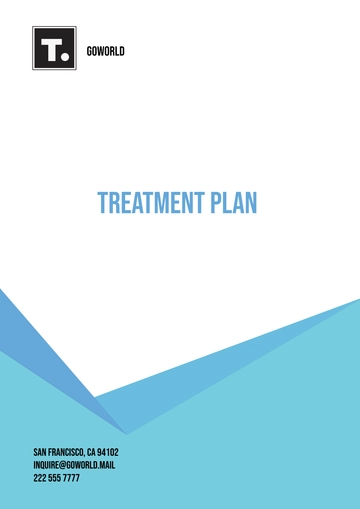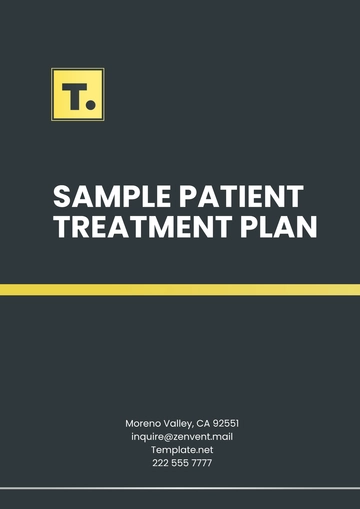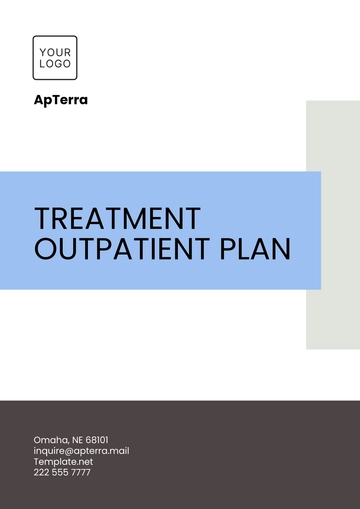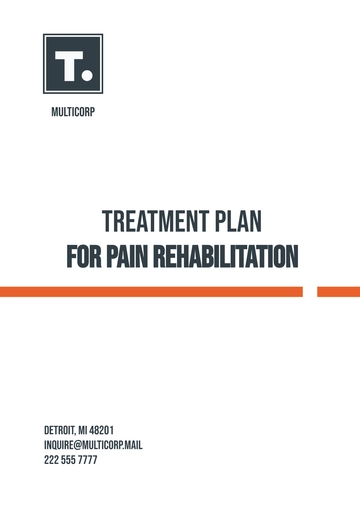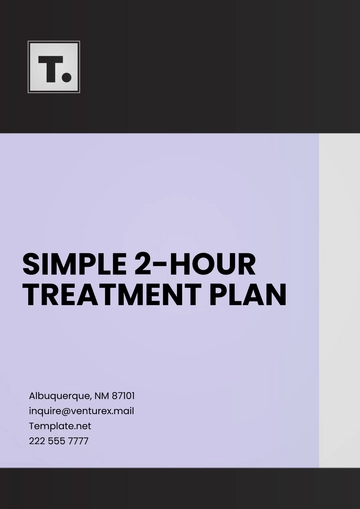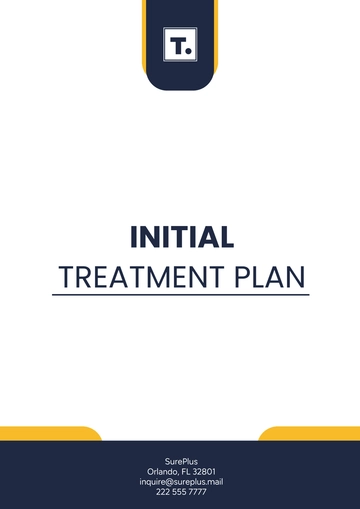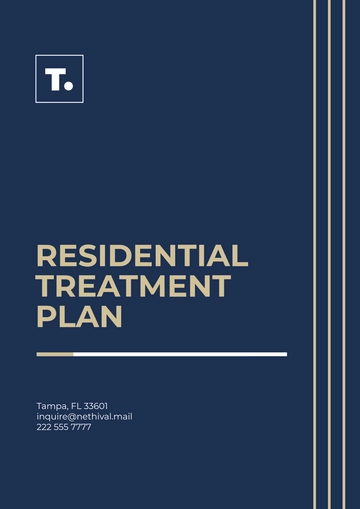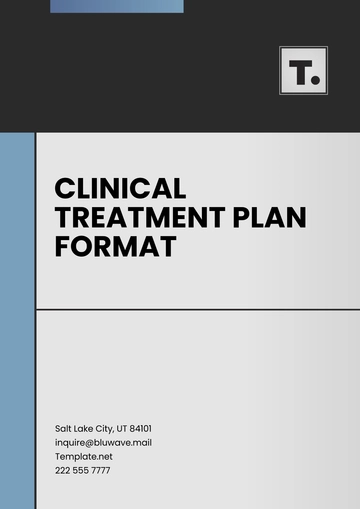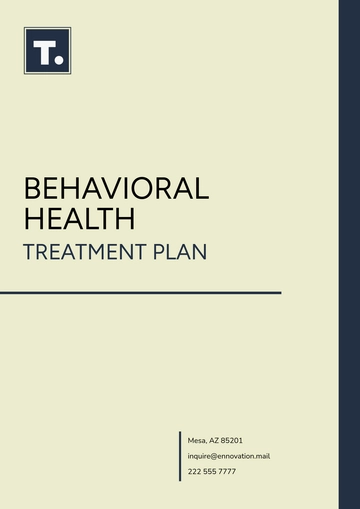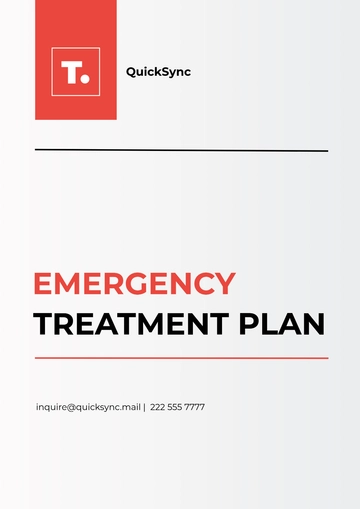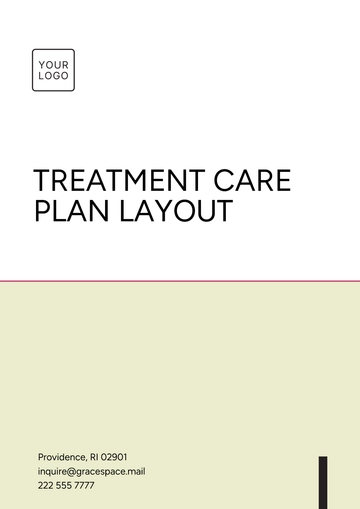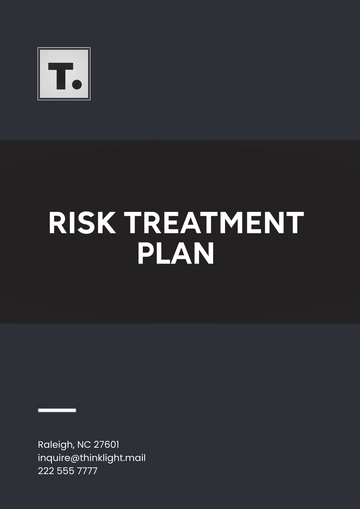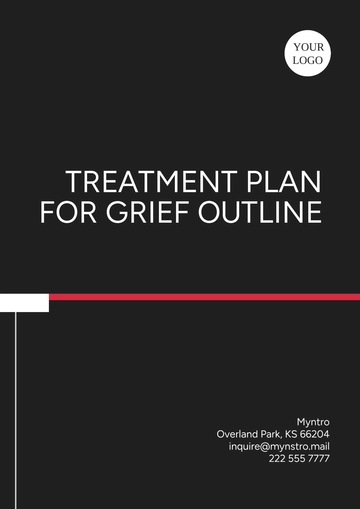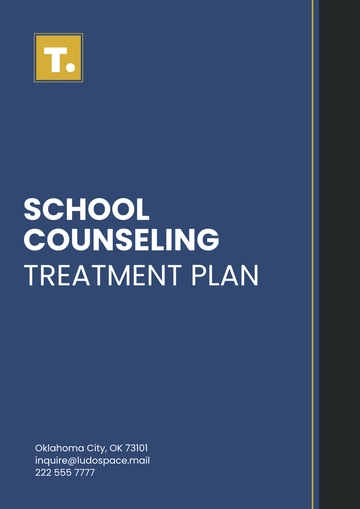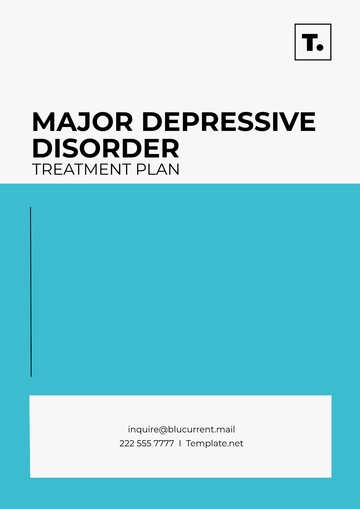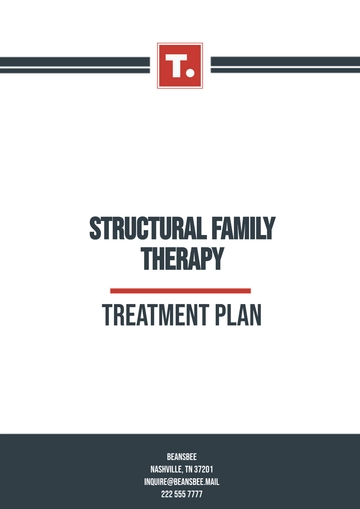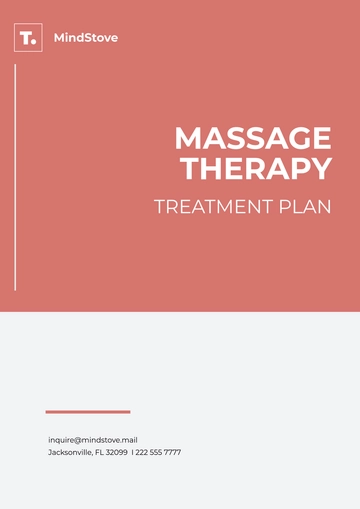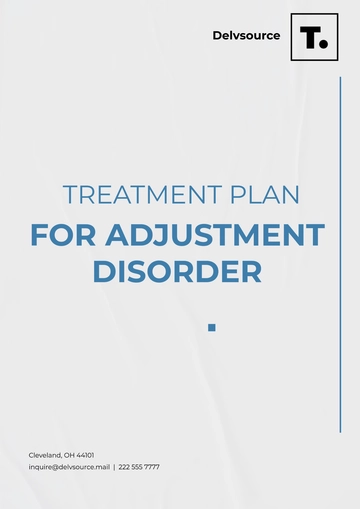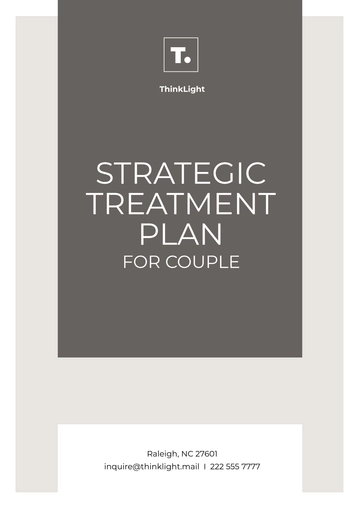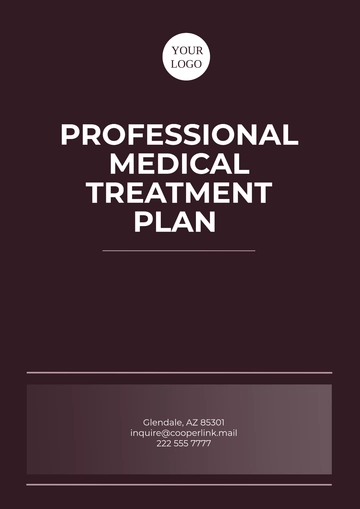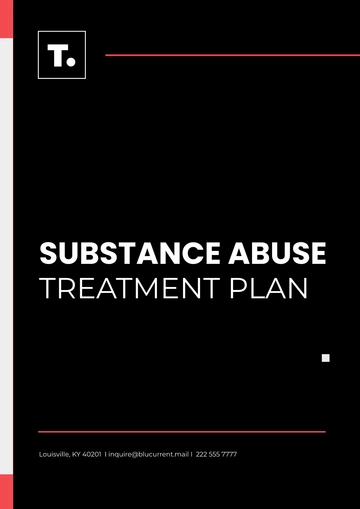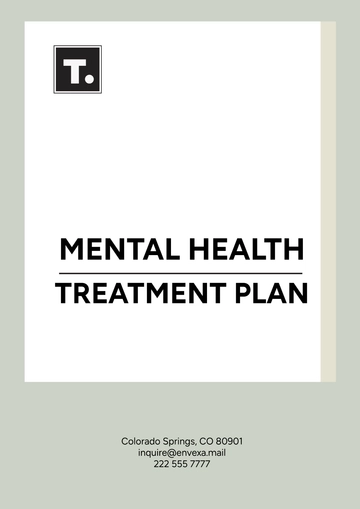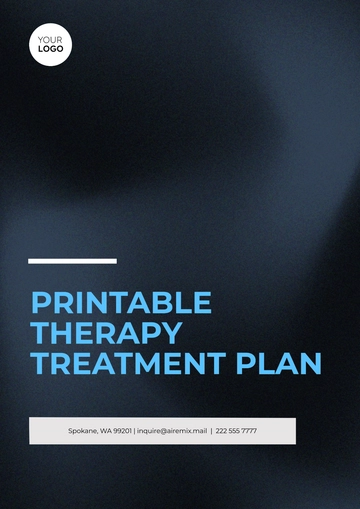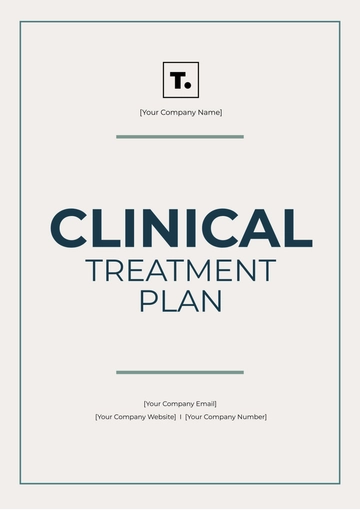Free Major Depressive Disorder Treatment Plan
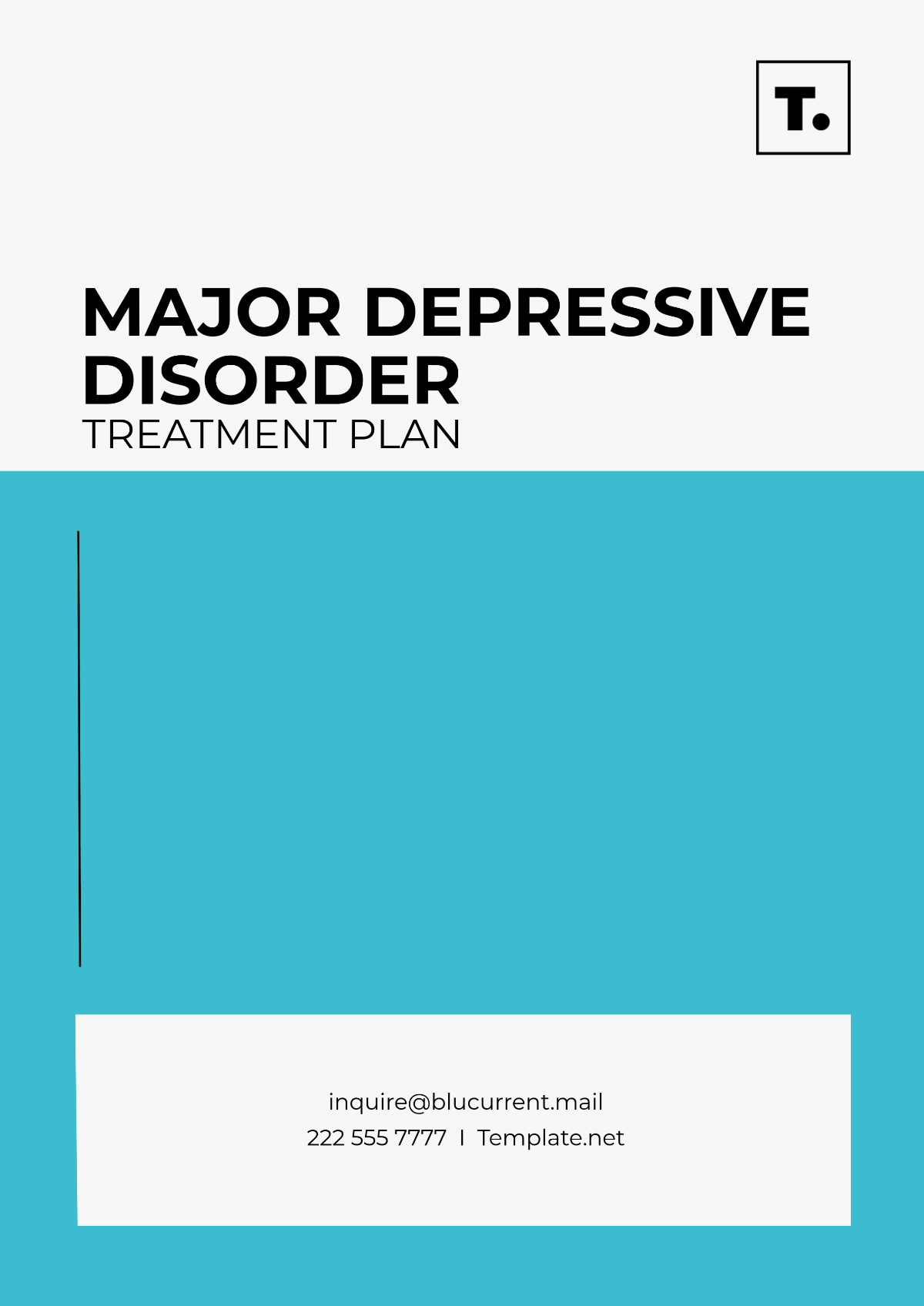
I. Introduction
This Major Depressive Disorder Treatment Plan is designed to outline personalized treatment for the patient diagnosed with Major Depressive Disorder (MDD). This comprehensive plan addresses the unique needs and circumstances of the patient to facilitate his/her recovery and well-being.
II. Patient Information
Name: [PATIENT NAME]
Age: [PATIENT AGE]
Gender: [PATIENT GENDER]
Date of Diagnosis: January 15, 2055
Medical History: The patient has a history of anxiety disorder and has been experiencing symptoms of depression for the past six months.
III. Diagnosis and Symptoms
The patient presents with the following symptoms indicative of Major Depressive Disorder:
Symptom | Severity (1-10) |
|---|---|
Depressed mood | 8 |
Loss of interest | 9 |
Fatigue | 7 |
Sleep disturbances | 6 |
Changes in appetite | 5 |
Feelings of worthlessness/guilt | 8 |
Difficulty concentrating | 6 |
Suicidal ideation | 3 |
IV. Treatment Goals
The overarching goal of treatment is to alleviate symptoms, improve functioning, and enhance the patient's overall quality of life. Specific treatment goals include:
Reduce depressive symptoms to a manageable level.
Improve sleep quality and duration.
Enhance motivation and engagement in daily activities.
Develop coping strategies to manage stress and negative emotions.
Minimize the risk of relapse.
V. Treatment Plan
The treatment plan will consist of a combination of pharmacotherapy, psychotherapy, and lifestyle interventions tailored to the patient's needs and preferences:
Treatment Modality | Description |
|---|---|
Medication |
|
Psychotherapy |
|
Lifestyle Interventions |
|
VI. Monitoring and Follow-Up
Regular monitoring and follow-up appointments will be scheduled to assess treatment response, monitor medication side effects, and adjust the treatment plan as necessary. The patient will be encouraged to communicate any concerns or changes in symptoms between appointments.
VII. Conclusion
This Major Depressive Disorder Treatment Plan aims to provide a structured framework for addressing the unique needs of the patient and promoting his/her journey toward recovery and improved mental health.
- 100% Customizable, free editor
- Access 1 Million+ Templates, photo’s & graphics
- Download or share as a template
- Click and replace photos, graphics, text, backgrounds
- Resize, crop, AI write & more
- Access advanced editor
Combat major depressive disorder effectively with Template.net's customizable Major Depressive Disorder Treatment Plan Template. Editable in our Ai Editor Tool, this template simplifies the development of personalized treatment strategies. Tailor it to address individual symptoms, preferences, and therapeutic modalities, empowering professionals to guide clients toward recovery with precision and compassion.
You may also like
- Finance Plan
- Construction Plan
- Sales Plan
- Development Plan
- Career Plan
- Budget Plan
- HR Plan
- Education Plan
- Transition Plan
- Work Plan
- Training Plan
- Communication Plan
- Operation Plan
- Health And Safety Plan
- Strategy Plan
- Professional Development Plan
- Advertising Plan
- Risk Management Plan
- Restaurant Plan
- School Plan
- Nursing Home Patient Care Plan
- Nursing Care Plan
- Plan Event
- Startup Plan
- Social Media Plan
- Staffing Plan
- Annual Plan
- Content Plan
- Payment Plan
- Implementation Plan
- Hotel Plan
- Workout Plan
- Accounting Plan
- Campaign Plan
- Essay Plan
- 30 60 90 Day Plan
- Research Plan
- Recruitment Plan
- 90 Day Plan
- Quarterly Plan
- Emergency Plan
- 5 Year Plan
- Gym Plan
- Personal Plan
- IT and Software Plan
- Treatment Plan
- Real Estate Plan
- Law Firm Plan
- Healthcare Plan
- Improvement Plan
- Media Plan
- 5 Year Business Plan
- Learning Plan
- Marketing Campaign Plan
- Travel Agency Plan
- Cleaning Services Plan
- Interior Design Plan
- Performance Plan
- PR Plan
- Birth Plan
- Life Plan
- SEO Plan
- Disaster Recovery Plan
- Continuity Plan
- Launch Plan
- Legal Plan
- Behavior Plan
- Performance Improvement Plan
- Salon Plan
- Security Plan
- Security Management Plan
- Employee Development Plan
- Quality Plan
- Service Improvement Plan
- Growth Plan
- Incident Response Plan
- Basketball Plan
- Emergency Action Plan
- Product Launch Plan
- Spa Plan
- Employee Training Plan
- Data Analysis Plan
- Employee Action Plan
- Territory Plan
- Audit Plan
- Classroom Plan
- Activity Plan
- Parenting Plan
- Care Plan
- Project Execution Plan
- Exercise Plan
- Internship Plan
- Software Development Plan
- Continuous Improvement Plan
- Leave Plan
- 90 Day Sales Plan
- Advertising Agency Plan
- Employee Transition Plan
- Smart Action Plan
- Workplace Safety Plan
- Behavior Change Plan
- Contingency Plan
- Continuity of Operations Plan
- Health Plan
- Quality Control Plan
- Self Plan
- Sports Development Plan
- Change Management Plan
- Ecommerce Plan
- Personal Financial Plan
- Process Improvement Plan
- 30-60-90 Day Sales Plan
- Crisis Management Plan
- Engagement Plan
- Execution Plan
- Pandemic Plan
- Quality Assurance Plan
- Service Continuity Plan
- Agile Project Plan
- Fundraising Plan
- Job Transition Plan
- Asset Maintenance Plan
- Maintenance Plan
- Software Test Plan
- Staff Training and Development Plan
- 3 Year Plan
- Brand Activation Plan
- Release Plan
- Resource Plan
- Risk Mitigation Plan
- Teacher Plan
- 30 60 90 Day Plan for New Manager
- Food Safety Plan
- Food Truck Plan
- Hiring Plan
- Quality Management Plan
- Wellness Plan
- Behavior Intervention Plan
- Bonus Plan
- Investment Plan
- Maternity Leave Plan
- Pandemic Response Plan
- Succession Planning
- Coaching Plan
- Configuration Management Plan
- Remote Work Plan
- Self Care Plan
- Teaching Plan
- 100-Day Plan
- HACCP Plan
- Student Plan
- Sustainability Plan
- 30 60 90 Day Plan for Interview
- Access Plan
- Site Specific Safety Plan
